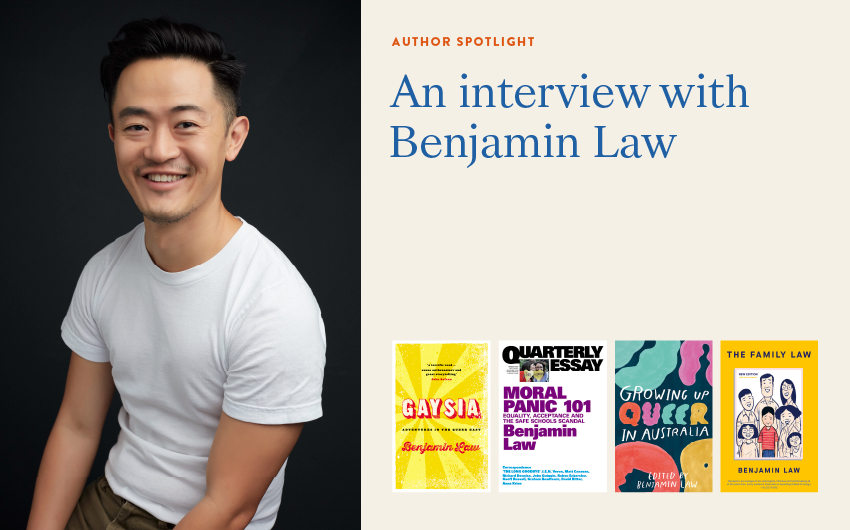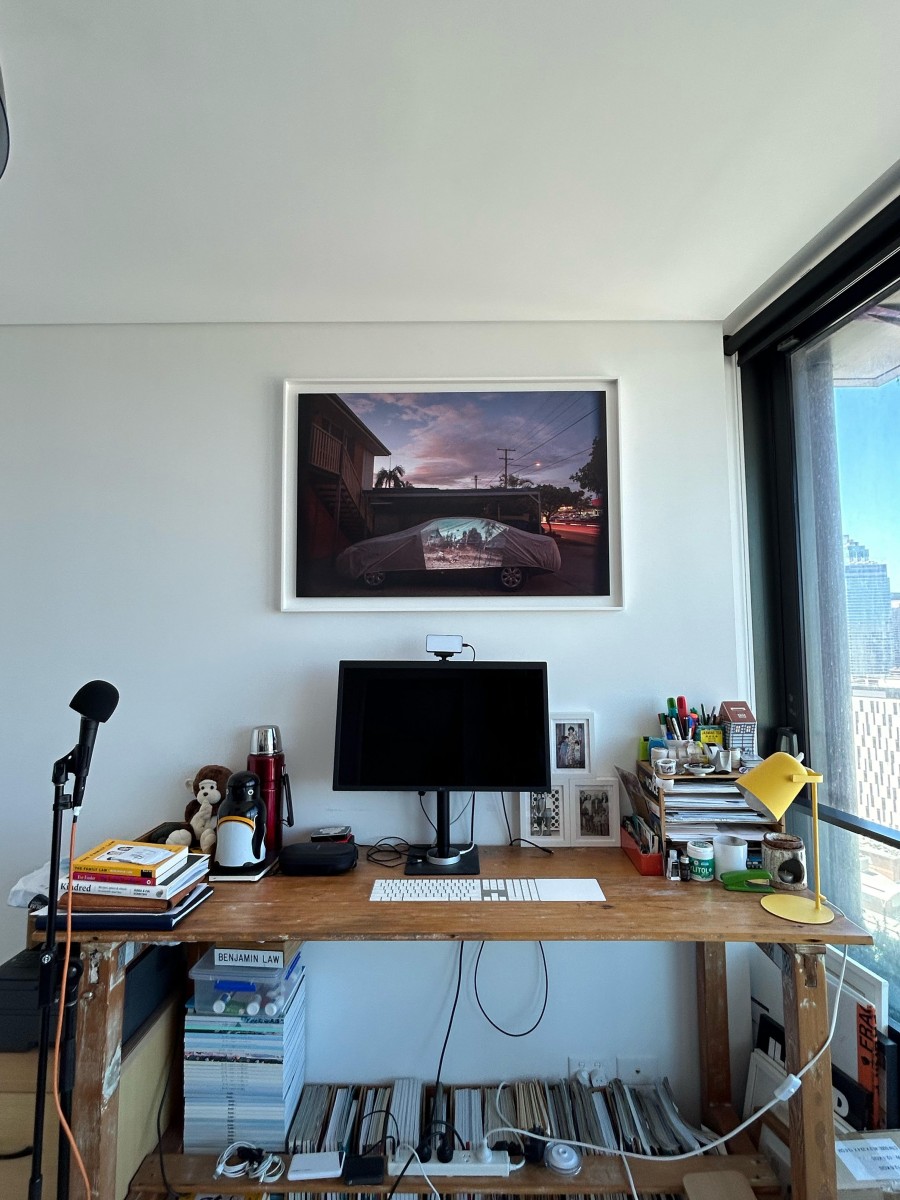News

News >
Author Spotlight on Benjamin Law
Today, we’re putting the spotlight on beloved Australian writer and media figure Benjamin Law. In this warm and funny interview, he explains how his family memoir The Family Law first came to fruition, what he thinks is the book’s enduring appeal thirteen years on from its initial publication, and what he’s reading now.
Benjamin Law is the author of Gaysia: Adventures in the Queer East and the Quarterly Essay Moral Panic 101, and editor of the anthology Growing Up Queer in Australia. He also wrote The Family Law – a joyous and much-loved family memoir which inspired a major SBS television series. The latest edition of The Family Law, with a new chapter detailing the Law family’s antics from the past decade, was published last month.
How was your first book – the first edition of The Family Law – acquired by Black Inc., way back in 2010?
It’s an insufferable story, really. Because here’s the thing: I never had any intention of writing a book. But when I saw superstar Alice Pung put out an open call for submissions for an anthology she was editing called Growing Up Asian in Australia, I knew I had to submit. I left it to the last minute, pulled an all-nighter and smashed out two essays. Several months later, I got the word Alice and Black Inc. wanted to publish both pieces … then publisher Chris Feik asked me, “Have you ever considered writing a book?” And here’s where I admit that the thought had genuinely never crossed my mind … but I totally lied and said, “Yes! It’s been my lifelong dream!” I got busy working on a pitch and the rest is history. I know. I’m an arsehole.
Over its lifetime, The Family Law has produced four editions and a major SBS TV adaptation. What do you think it is about this book – and about your family! – that continues to resonate with Australians now thirteen years after its initial release?
The older I get, the more I realise my family is … uh, unique. Mum, especially. And when I wrote the book, I really didn’t think a book about growing up gay and Asian in coastal Queensland while dreaming of fame during the height of anti-Asian Hansonism while my parents’ marriage fell apart screamed “Australian bestseller”. But I think everyone relates to those feelings of shame you have growing up, the embarrassment you have about your family and how you were raised … and they saw The Family Law for what it was: a mission to celebrate all of our weirdness and pain, and to find the funniness in it too. That never gets old.
Is there a particular part of the publishing process that you love or hate the most?
Holding the book in your hand for the first time is totally magical. And I love the days where you’re feeling the story come together and you’re making yourself laugh or gasp at the desk. It’s embarrassing and absolutely unhinged, but if you’re entertaining and engaging yourself, you know the writing’s working.
And I really try not to complain about the writing process. My ancestors survived war, famine, poverty, becoming refugees and several forced migrations so I could roll out of bed every morning, put some ideas together and get paid for it. It is not a hardship.

A peek into Benjamin’s workspace: ‘Yes, I’m one of those insufferable people with a standing desk.’
Aside from the books you’ve written alone, you also edited the anthology Growing Up Queer in Australia. How does editing an anthology compare to writing a book on your own? Is one more stressful than the other?
Oh, editing a book is a total pleasure – everyone else has done the work! The hardest part is being unable to include everything you want to publish. There were such great essays that didn’t make Growing Up Queer in Australia that were absolutely fantastic, but we just couldn’t put out a book that would resemble a phone directory. Being forced to reject amazing queer stories and writers? Pure homophobia.
What does your writing practice look like? Are you a meticulous planner, or do you wait for a story to come together organically?
Meticulous planner. It’s only when I do that I feel able to take risks … and then let the story come together organically.
What’s one book you think everyone should read? (Other than The Family Law!)
I’m at that stage in my life where I’m reading a lot of philosophy, packaged in a way to help you deal with modern bullshit and internal psycho-dramas. Lately, I’ve particularly loved Brigid Delaney’s book on stoicism Reasons Not to Worry and the School of Life’s On Failure: How to Succeed at Defeat.


